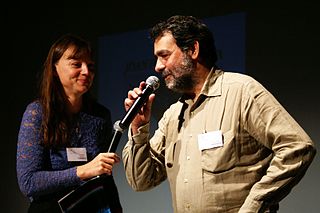A Quote by Jon Snow
I don't know whether we think in moving images or whether we think in still images. I have a suspicion that on our hard drive, our series within our brains, [exist] still photographs of very important moments in our lives. ... That we think in terms of still images and that what the photography is doing is making direct contact with the human hard drive and recording for all time a sense of what happened.
Related Quotes
I think cinema is needed throughout Africa, because we are lagging behind in the knowledge of our own history. I think we need to create a culture that is our own. I think that images are very fascinating and very important to that end. But right now, cinema is only in the hands of film-makers because most of our leaders are afraid of cinema.
We've sweated and torn out our hair trying to reconstruct our chosen lives, to fashion them like literary sculptures, at once monumental and yet human. We've applied all of our intelligence, our empathy, our critical faculties, our compassion - and we think, in our delusion, that it's still 1960, and our work is going to get noticed.
Images are no longer what they used to be. They can't be trusted any more. We all know that. You know that. When we grew up, images were telling stories and showing them. Now they're all into selling. They've changed under our very eyes. They don't even know how to do it anymore. They've plain forgotten. Images are selling out the world. And at a big discount.
I think it's time we ask ourselves if we still know the freedoms that were intended for us by the Founding Fathers... Whether we believe in our capacity for self-government or whether we abandon the American Revolution and confess that a little intellectual elite in a far-distant capital can plan our lives for us better than we can plan them for ourselves.
The wonderful police officers who spend time with me I don't think appreciate that, but I do still drive. I do still cook: not often, but just last week, I really felt like making one of my mum's old recipes - so I did. I do still go to our local department store to buy things like maternity jeans that no one else can really do for me.
Computer images, like camera images today, will be seen as representations of a simulated, second-degree reality with little or no connection to the unmediated world. This is one lesson we can learn from photographs, and especially from those of the last 25 years: images exist not to be believed, but to be interrogated.
Our world is so glutted with useless information, images, useless images, sounds, all this sort of thing. It's a cacophony, it's like a madness I think that's been happening in the past twenty-five years. And I think anything that can help a person sit in a room alone and not worry about it is good.

































